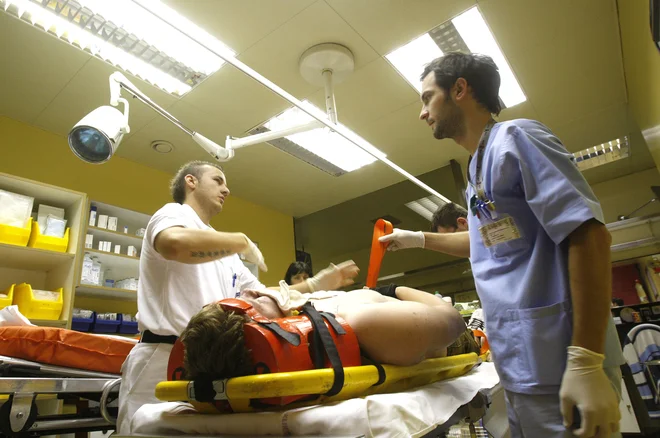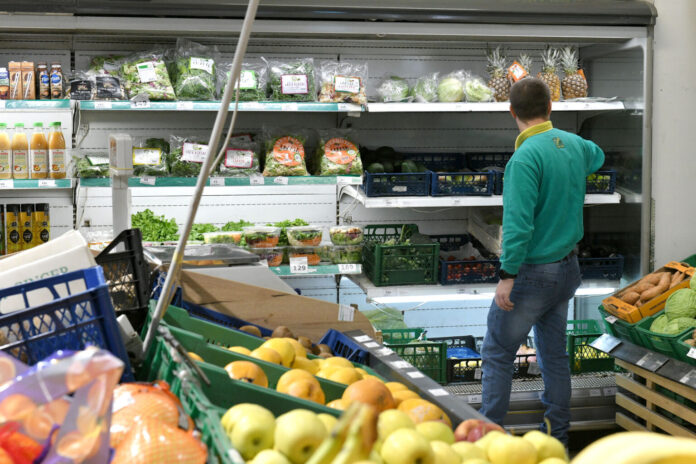Agricultural land must be protected as critical infrastructure

Strengthening resistance for nutritional security in quiet time means providing more local food in public institutions, and in crisis, providing double use of agricultural land to provide food for those who need it most, that is, hospitals and army, the agricultural minister said at a national consultation on the strength of Slovenia's resistance. Mateja Čalušić.
Agricultural land should be protected as critical infrastructure, as they are crucial for food production and self -supply, especially in emergencies. The first step is to protect permanently protected agricultural land, said Čalušić.
With 2500 square meters of agricultural land per capita – which is half as much as the average European needs to produce food for its own needs – and 859 square meters of arable land on the tail of the EU. The amendment to the Agricultural Land Act provides for permanent protection of about 30,000 hectares of state land, the regulation of irrigation systems on them, and over time also directing what should be grown on them.
In addition to protecting agricultural land, the promotion of local food production, investing in food production such as irrigation systems and warehouses, as well as investing in modern technologies and innovations in agriculture, which can increase productivity and sustainability of food, said the minister said.
Population aging problem already in peace
According to the Minister of Health, the Slovenian Health System is Valentine Prevolnik Rupel good. According to her, the recent study of the Organization for Economic Cooperation and Development (OECD) also confirmed, which showed that Slovenian patients are generally satisfied with primary health care.
Health infrastructure has been neglected in the last 30 years and, despite the increase in the scope of medical staff, does not allow the treatment of the most complex patients, said the head of the University Clinical Center Ljubljana Marko Jug. Photo: Blaž Samec/Work
One of the biggest problems of the healthcare system is the aging of the population. The number of elderly who need health care is increasing, and thus the incidence of chronic diseases that require long -term and complex treatment, said Prevolnik Ruplova. Slovenian society is one of the oldest in Europe. Since independence, life expectancy has been extended by nine years. The proportion of over 65 has doubled in the last 20 years. We spend years of poor health, with chronic diseases, dependent on others, said the head of the National Institute of Public Health Branko Gabrovec.
According to Prevolnik Rupel, the lack of staff and technological equipment is an important problem in healthcare. The government has taken several measures to improve the situation, including the increase in salaries, to promote specializations in areas where the lack of staff is most pronounced, and improvement of working conditions. It invests in the update of health infrastructure, which includes the construction of new facilities and the modernization of the existing ones, said the minister, who emphasized the importance of international cooperation.

The National Center for Emergency Center will be established next to Peter Držaj Hospital in Ljubljana. Photo: Vid Svetina
Important regional connection
Health infrastructure has been neglected in the last 30 years and, despite the increase in the volume of medical staff, does not allow the treatment of the most complex patients. But as many investments in the healthcare system have not been for decades now, said the head of the University Clinical Center Ljubljana Marko Jug. He welcomed the decision of the state to establish a National Center for Emergency Conditions at the Peter Hospital in Ljubljana. In normal conditions, it will provide health care for the needs of public health, and at emergencies it will not have capacities that are not now. The center will also include operating rooms, which will be important in a few years when the surgical clinic will begin to be renovated.
“When an extraordinary event occurs, such as in Macedonia, no healthcare system can absorb a large number of seriously damaged without reducing productivity in other areas. Therefore, regional connection is important, « South pointed out. “It is even more important to let people know that those who care about the development of healthcare really care. In crisis due to Covida-19, patients were able to take care of public health institutions. Private did not contribute staff, « he supported public health.





:format(webp)/s3/static.nrc.nl/wp-content/uploads/2025/04/18221607/data131056432-313125.jpg)

